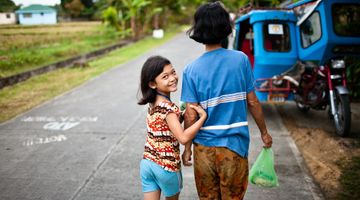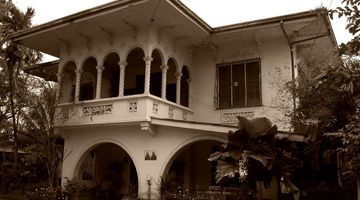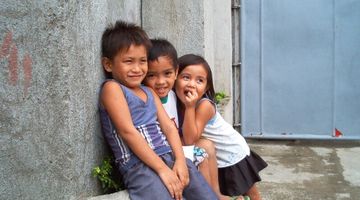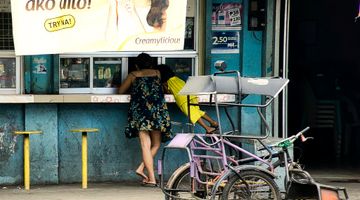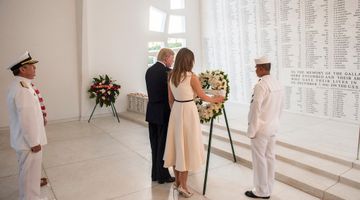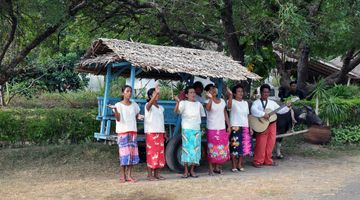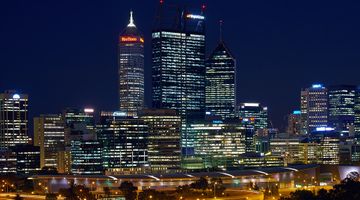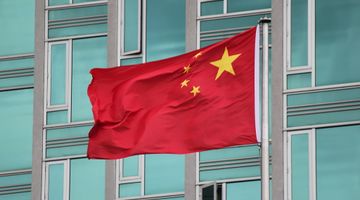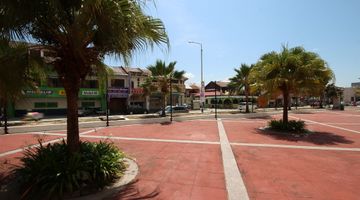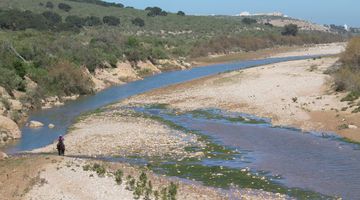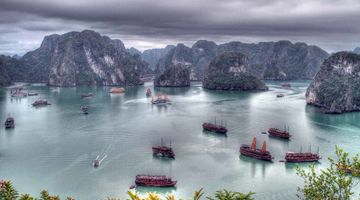The Main Public Holidays in the Philippines
Most Filipinos work in the big cities, away from their beloved hometown and family. Known for close-knit relations, a holiday for many Filipinos means spending time with their loved ones even if you need to travel for hours to reach them.
On public holidays all offices throughout the country close and on certain dates so do even large shopping and entertainment centres.
General notes
Previous presidents of the country recognized this fact and passed proclamations for longer weekends. The government has the right to add an extra day to a weekend if certain National Holidays fall on a weekday thus creating a longer weekend which would allow the locals to visit their families. This is why some holiday periods can vary in date from year to year.
Case in point, in 2007 the former President Gloria signed RA 9492 invoking that all holidays that fall on Wednesday and Sunday should be moved to Monday of the following week effectively creating a 3-day weekend. Also, if a holiday happens to fall on a weekend, the weekday immediately before or after can be declared a special non-working day. The rise of the so-called ‘weekend warriors’ among the millennials can be partly attributed to this.
Furthermore, there are also religious considerations. The dates of some religious observations such as the Holy Week are movable since they are calculated according to the lunar calendar. Cities and towns with large Muslim communities celebrate their own Muslim holidays too.
January
The official dates for holidays are usually announced at the beginning of each year.
January 1st is a fixed regular holiday marking the nationwide celebration of the New Year’s Day. January 2nd is almost always declared a non-working holiday but this can change.
The same goes for the Chinese New Year or Lunar New Year, which is observed according to the Lunar Calendar and is celebrated in the end of January of beginning of February depending on the year.
February
February has one fixed and one movable holiday.
February is when Araw ng Saligang Batas is observed. Also known as the Constitution Day, it commemorates the approval of the 1987 Philippine Constitution.
The entire country also observes the EDSA People Power Revolution Anniversary on February 25th. This is a fixed holiday which commemorates the peaceful revolution in 1986 that put the ended to the Marcos’ regime.
March–April
The Holy Week is one of the most awaited holidays in the country for its religious significance. People often take advantage of these non-working days to go on vacation with family and friends. It normally falls between March and April depending on the solar and lunar calendars. For Christians, it is the time for reflection and fasting. Maundy Thursday commemorates the day when Jesus had his Last Supper with His disciples while Good Friday marks crucifixion and death of Jesus Christ in Calgary. Easter meanwhile celebrates His resurrection. Government offices and establishments are closed on Good Friday. On Black Saturday, even major malls close down. Most establishments reopen to the public on Easter Sunday.
As a tribute to the bravery and heroism of the Filipino and American Soldiers during the Japanese occupation in World War II, the country celebrates April 9th as Araw ng Kagitingan or Day of Valour. It is a non-working holiday.
May
Together with the global celebration of International Worker's Day or May Day, the Philippines honour their Filipino workers on Labour Day that falls on May 1st. Activist groups and Labour Unions usually take this chance to rally and air their grievances. There are also job fairs all over the country.
June
June 12th marks one of the most important events in the history of the Filipino people. Independence Day is celebrated on this day commemorating the Philippine Declaration of Independence in June 12, 1898 , ending the 300-year Spanish Colonial rule.
July
Another holiday which is dependent on the lunar calendar is Eid-Ul Fitr which has been a regular holiday since 2002. It falls between end of June and beginning of July and indicates the end of Ramadan for Muslim Filipinos.
August
August marks yet another significant date in the history of the country. Every year on the 21st of August, on Ninoy Aquino Day, the entire country commemorates the assassination of Benigno Aquino, Jr on this day in 1983. Many believe this event sparked the 1986 People Power Revolution that eventually toppled the dictatorship regime of Ferdinand Marcos.
On the last Monday of August, the Philippines pay tribute to all the National Heroes of the Philippines by declaring this day The National Heroes Day. The date is highly significant as it marks the start of the Cry of Pugad Lawin or Cry of Balintawak which heralded the Philippine Revolution against the Spaniards.
September
In September, there are 2 important dates for the Muslim Filipinos. First is the Eid-al-Adha which in accordance with the Islamic calendar begin on the evening of August 31st and ends in the evening of September 1st. This holiday signifies the end of the Hajj or the annual pilgrimage to Mecca. Another name of this holiday is the Festival of Sacrifice, and those who can afford it sacrifice halal domestic animals like cow, goat, sheep, ram, or camel.
September 22nd is the first day of the lunar Hijrah Calendar or the Islamic New Year. This is said to be one of the four sanctified months and the second most holy celebration after Ramadan.
October
October 31st is often declared a special non-working holiday to give people more time to get prepared for All Saints Day which is held on November 1st. This holiday is one of the most important celebrations for the Filipino Christians. Many people actually go back to their hometowns to visit the tombs of their departed loved ones. They take care of the tombs, cleaning and decorating them, offer prayers. bring their dead's favourite food, candles, and flowers. In recent years, the atmosphere of the holiday has changed significantly from a solemn one to almost festive. In many cases, this holiday is always a good chance to reunite for the extended families.
November
On November 30th one of the Filipino heroes is honoured. Declared as Bonifacio Day, this day celebrates the birth of the “Father of the Philippine Revolution", Andres Bonifacio.
December
With arrival of the first days of December the country starts buzzing with preparation for Christmas, although, of course, the holiday itself falls on December 25th like in the rest of the world. The days immediately before and after Christmas are usually declared special non-working days too to give people more time for celebrations.
On December 30th, the Filipinos remember the life and works of their National Hero, Dr. Jose Rizal. Rizal Day actually marks the anniversary of his death – or rather execution in Bagumbayan.
Sandwiched between Rizal Day and New Year's Day, New Year's Eve on December 31 is usually proclaimed a special non-working holiday.



